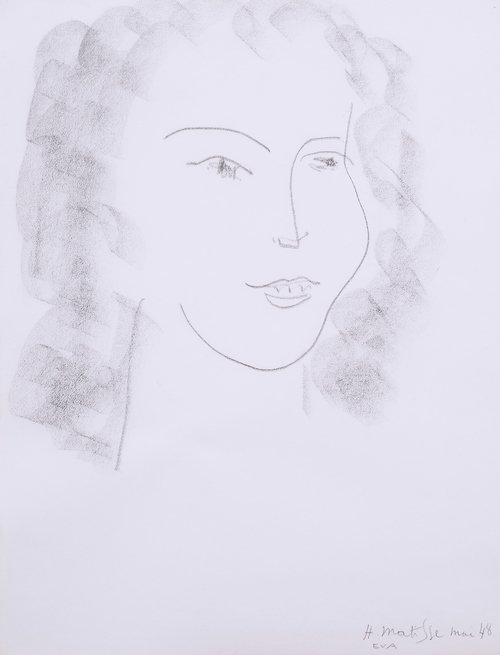When we say we treat items of all kinds at The Conservation Center, we truly mean it. Whether a noteworthy painting by a well-known artist or a drawing by a client's child, the team at The Conservation Center always provides quotes for treatment based on time and materials. Treatment estimates are not based on the potential value of an item. However, we are often asked, "is my item worth treating?"
The reality is that all items are worthy of conservation, but clients have a variety of reasons for seeking treatment. Some items have great sentimental value, and their owners have less concern about the treatment costs. Others may approach treatment from a strict dollar and cents approach and want a better understanding of their item's value.
This charcoal drawing of an oversized wrench was conserved and framed by the owners. The artist is their son, who was in school at the time.
"Conservators do not assign value to items under consideration for treatment because it is considered a breach of the Conservators Code of Ethics," notes Amber Schabdach, Senior Paintings Conservator with The Conservation Center. Set by the American Institute for Conservation (AIC), the national professional association for conservation, the Code of Ethics and Guidelines for Practice set the standards for conservation professionals across the United States. One of the guidelines states, "the conservation professional should be especially mindful of the considerable potential for conflict of interest in activities such as authentication, appraisal, or art dealing." AIC also states that "conservation professionals can identify or provide more information about an object, but they should not appraise it for any monetary value."
Detail of “Les deux Saltimbanques” by Pablo Picasso before treatment
Detail of “Les deux Saltimbanques” by Pablo Picasso after treatment
“Les deux Saltimbanques” by Pablo Picasso after treatment
Clearly, there would be a conflict of interest if conservators made value judgments when proposing treatment. The temptation would be to overvalue an item in order to encourage the owner to proceed with treatment.
That is why when asked, "is my item worth treating?" we refer clients to an independent professional appraiser. Independent professional appraisers are not advocates. They place values on items solely based on market data and should not be biased. And like conservators, they have a code of ethics. "Ethics play an important role in the field of appraising. Searching for appraisers that follow the ethical standards set for by the industry is an important first step in finding the right appraiser", states independent appraiser Gary Piattoni of Gary Piattoni, Inc. This code is set forth by the Uniform Standards of Professional Appraisal Practice (USPAP). For example, appraisers should not charge a fee based on the item's value. This would create a clear conflict of interest.
Portrait of a Woman by Henri Matisse, before treatment
Portrait of a Woman by Henri Matisse, after treatment
The conservator's job is to assess any damage, identify materials, understand methods of construction, and know the techniques of the original artist or craftsperson. Conservators then decide how best to treat each object's condition.
The appraiser's job is to identify the item, understand the relevant market, seek out any provenance and related data, and then set an unbiased value based on market data.
Collection of family documents, including citizenship papers.
When considering the services of a conservator, it is crucial to ensure that they adhere to the guidelines of the AIC. Similarly, when searching for an appraiser, it should be clear that they work under the standards set forth by USPAP.
Not everyone in their respective trade follows the guidance set by their professional organizations. If you are in a situation with a conservator or appraiser and perceive a clear conflict of interest, this should be a red flag to seek another opinion.
Further information on the ethical guideline for conservators and appraisers is available at: https://www.culturalheritage.org/ and https://www.appraisalfoundation.org/.







